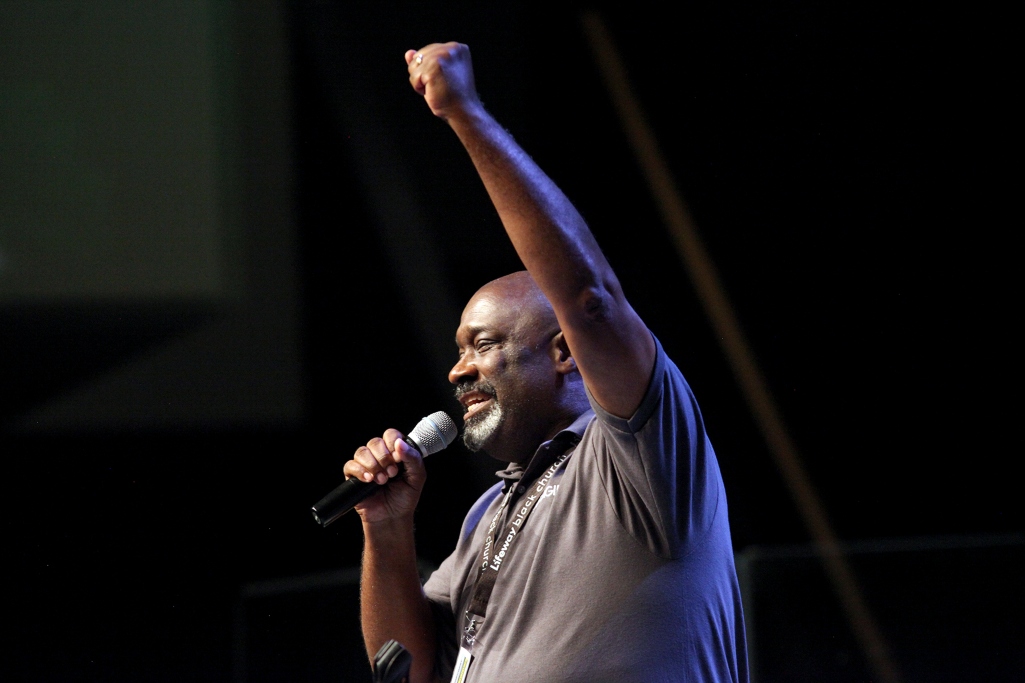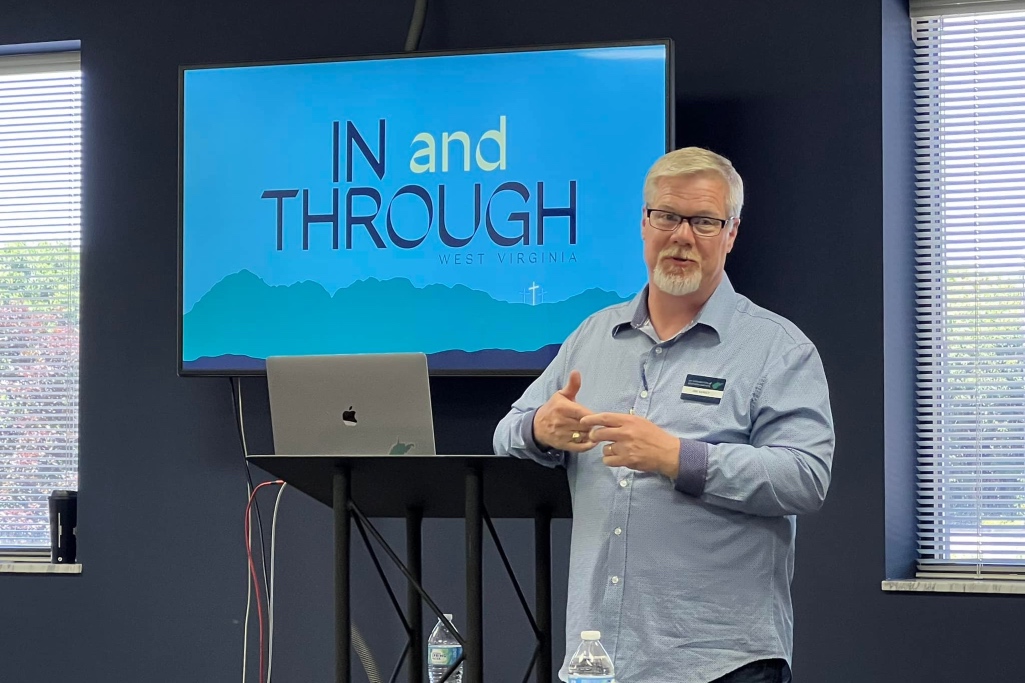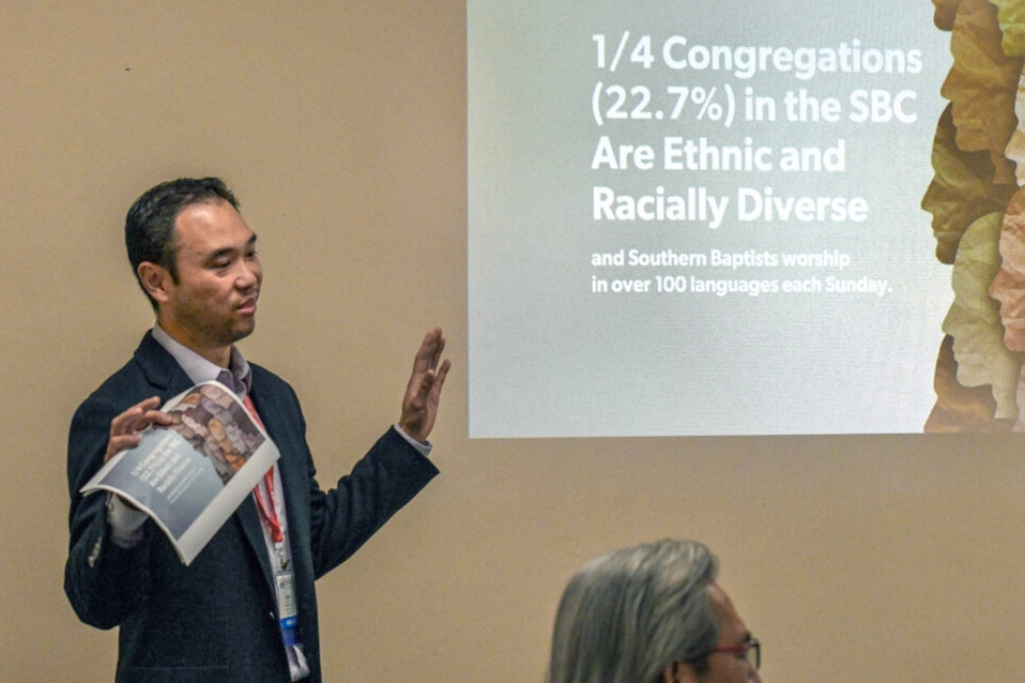
Mark Croston, national director of Black Church Ministries at Lifeway Christian Resources, has been a part of all 30 years of the Black Church Leadership and Family Conference, including the last 10 as event organizer.
RIDGECREST, N.C. — Since 1993, Black pastors and church leaders have gathered at Ridgecrest Conference Center for a week of recharging and refreshment. After 30 years, Mark Croston felt it was time for leaders to “reimagine” during the Black Church Leadership and Family Conference (BCLFC).
“Pastors need to grapple with changes that have happened and need to happen in their churches post-COVID,” said Croston, national director of Black Church Ministries at Lifeway Christian Resources. “What paradigm shifts need to be implemented to improve, and what things need to be gotten rid of? This conference is designed to help pastors reimagine how they can be successful.” Croston said he has been a part of the conference since the beginning, coming first as a pastor and then for the last 10 years as the event organizer with Lifeway.
More than 600 participants “met on the mountain” for what Croston said is the largest national gathering of African American Southern Baptists. Each day, BCLFC attendees were offered early morning praise and prayer time, Bible exposition based on Lifeway’s YOU curriculum, 20 customizable tracks of around 100 different small-group classes, gender-specific afternoon sessions and an evening worship service and sermon.
Evening sermons
Croston said he works to choose pastors who will have something important to say to those at the conference but who also bring a unique style. “We want to put a variety of preaching styles on the main stage,” he said. “We don’t want people to glorify the style of sermon but the substance of it. The focus should be on the Word being preached, not the specific way in which it’s being preached.” To highlight those stylistic differences, evening speakers included a parachurch ministry leader, a professor and two pastors.
Monday night Richard Blackaby, president of Blackaby Ministries International, preached from Genesis 12 and God’s call on Abraham. He drew from his experiences as a pastor and watching his father, Henry Blackaby, follow God even in challenging circumstances. “God didn’t put us on the planet to play it safe or to be comfortable, but to glorify Him,” he said. Blackaby challenged church leaders to be the type of people God seeks to use. “If you want to be a blessing, you have to have character,” he said. “God’s not giving a big assignment to someone with small character.”
On Tuesday evening, William “Duce” Branch, assistant professor of preaching and Bible at Southeastern Baptist Theological Seminary, drew from his past as the hip-hop artist “The Ambassador” and began his sermon on Psalm 146 by reciting lines from one of his songs. Branch said leaders should dwell on who God is, who we are in light of who God is and who He has called us to be. “Praise is what we do, and praisers are who we are,” he said. Unfortunately, too many have misplaced praise, he said. “Praiseworthiness is tied to trustworthiness. Who you praise is who you trust.”
Peter Wherry, senior pastor of Mayfield Memorial Missionary Baptist Church in Charlotte, North Carolina, delivered the Wednesday night sermon from Judges 4 on Deborah and the person God uses. “The surprising work of God requires unique servants who believe it is possible for them to be part of the surprise,” he said. “There’s already been one Savior; we don’t need another one. We need everyday people who believe they can be part of the surprising work of God.”
For the final evening session on Thursday night, James Gailliard, senior pastor of Word Tabernacle Church in the Rocky Mount, North Carolina area, preached on Philip and the Ethiopian eunuch in Acts 8. “The worst place to be is not the desert,” he said. “The worst place to be is somewhere God has not placed you.” Gailliard challenged hearers to consider the cost of salvation. “Stop acting like redemption and salvation are cheap,” he said. “It cost something. Just because I didn’t pay the price doesn’t mean it’s not costly.”
Denominational and familial ties
Croston said the BCLFC also allows pastors to develop deeper relationships with Southern Baptist entities and with their own families.
“Most participants are Southern Baptist,” he said, “but their churches haven’t been part of the SBC for generations.” Croston noted that for many other Southern Baptists, their churches have long histories within the convention. That’s not the case for most Black pastors, he said. “The first Black Southern Baptist church became a part of the convention in the 1950s. When I became a Southern Baptist pastor in the 1980s, there were 400 Black Southern Baptist churches. Today, there are more than 4,000,” Croston said.
The BCLFC allows participants the opportunity “to learn how entities exist to serve churches by hearing from their representatives,” he said. “They get to hear why it’s important to give to the Cooperative Program and all we do as Southern Baptists when we work together.”
Croston also said he intentionally develops the conference to allow pastors to bring their wives and families. “At these kinds of events, pastors and leaders often have to leave everyone else at home,” he said. Instead, at BCLFC, everyone in the family can participate and find the support and training they need, according to Croston. “My daughter came to the first conference as a preschooler,” he said. “Now, she’s here as a leader and has maintained friendships with people across the country she first met here when she was young.”
A unique Black Baptist event
Croston recognizes some may wonder why a conference specifically for Black pastors exists. As an illustration, he notes the different types of cuisines he enjoys, “but my go-to is soul food,” he said. “But I don’t want any of the others to close. They all have unique flavors that different people enjoy. Churches are like that. Each one has its own flavor.”
With that, Croston says the uniqueness of congregations plays a role in evangelistic efforts. “Our job is to reach the world with the gospel,” he said. “We need all these different flavors of churches because no one church can reach all the world.”
While most of the participants are African Americans, Croston said some church leaders from other ethnicities come to learn about the Black church context. “The conference is a great place for people who are serious about reaching African American communities,” he said. “Maybe the context has changed around a church, and they want to better reach their neighbors.” He also noted adoptive parents of a Black child have been attending to learn and provide special experiences for their child.
“Nowhere is the church monolithic,” Croston said, “neither on earth or in heaven. Every nation, tribe and tongue will be around the throne one day. Those ethnic distinctives will still exist at the throne.” The BCLFC provides a way for church leaders to experience worship and training in a unique context while equipping them for ministry at their church, according to Croston. “This helps pastors see they are not lone soldiers,” he said. “They can take these great ideas and strategies and employ them in their congregation.”
Registration is now open for next year’s Black Church Leadership and Family Conference on July 22-26, 2024. To register, visit Lifeway.com/BlackChurchConference.
(EDITOR’S NOTE – Aaron Earls is a writer for Lifeway Christian Resources.)


